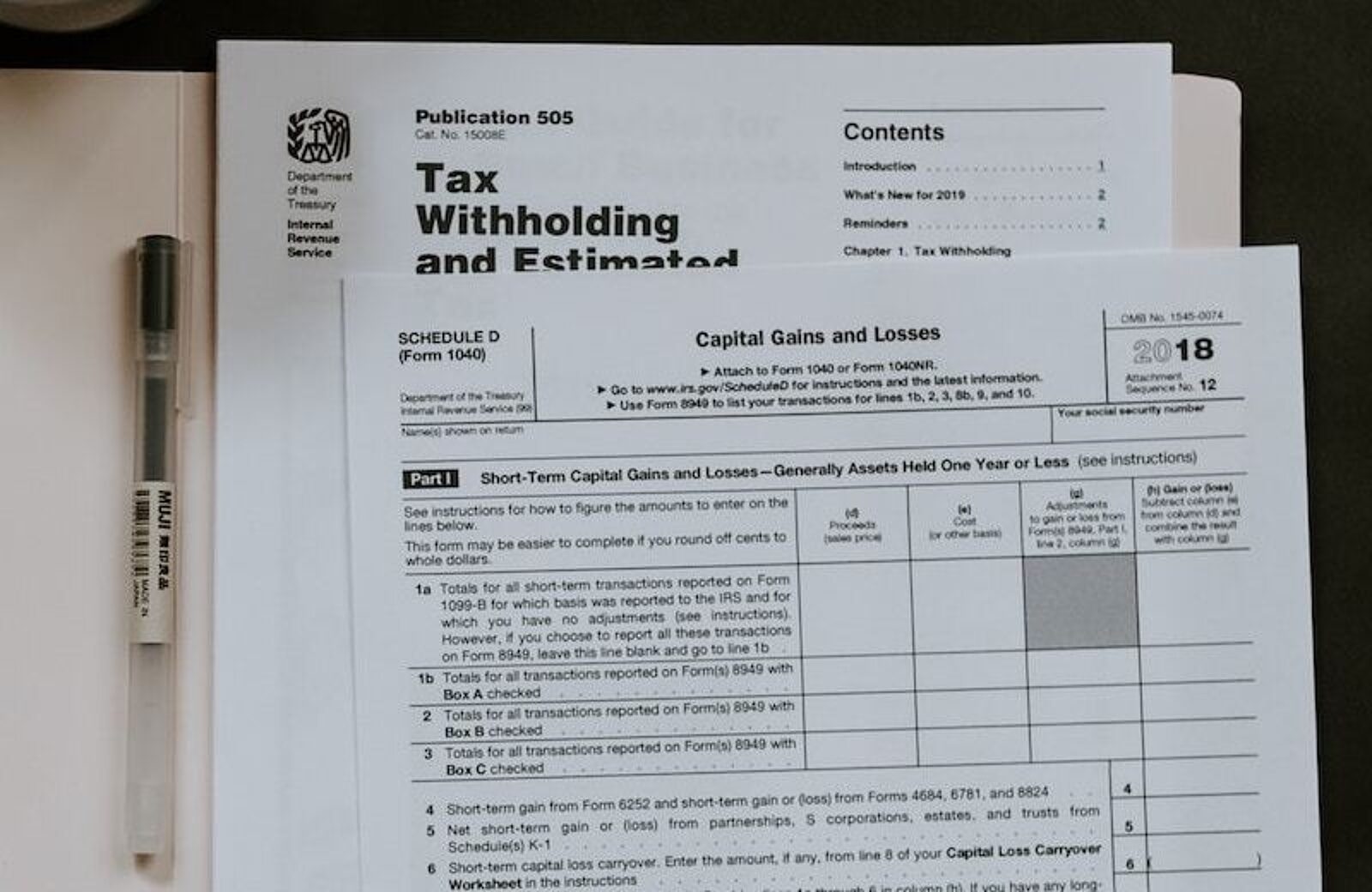
What Restaurants Need to Know About IRS Tip Reporting
Restaurant employers and employees have specific reporting responsibilities when it comes to tips. Read about them here.

Ashley PerssicoAuthor
Dave EmmermanHead of Enterprise at Xero


Restaurant Cost Control Guide
Use this guide to learn more about your restaurant costs, how to track them, and steps you can take to help maximize your profitability.
Get free downloadTips play a huge role in the payment of restaurant employees, especially those in the front of the house (FOH). This is why IRS tip reporting is hugely important to almost every restaurant business.
One of the most important factors that restaurant employers and employees alike should be aware of is that tips are considered taxable income. According to the IRS, “all cash and non-cash tips received by an employee are income and are subject to Federal income taxes.” Because of this, employees and employers each have specific reporting requirements that they must be aware of.
Read on to see what the IRS requirements are and how they may impact your restaurant or job as a server.
Restaurant Operations Manual Template
Use this free template to easily outline all of your operating procedures and make day-to-day operations as consistent as possible.

A restaurant employee’s responsibilities for tip reporting
The U.S. Department of Labor (DOL) defines a tipped employee as any individual who engages in a job in which they regularly receive more than $30 a month in tips. State and local jurisdictions may have their own definitions, likely similar to the federal definition, if not the same.
Tips are discretionary (optional or extra) payments provided to an employee by a customer. Tips are often in cash or via a tip line on an electronic payment such as a credit or debit card. However, tips can also include non-cash payments in the form of tickets or other items of value. Tips that are received as payouts from a tip pool or via either formal or informal tip-sharing arrangements also qualify.
Federal standards require that every tipped employee do the following three things:
1. Keep a daily record of both cash tips (cash and credit) and non-cash tips (movie or concert tickets, etc.).
Employees can use Form 4070, Employee’s Daily Record of Tips, to keep track of tips received. You’ll also need to keep a record of the date and value of non-cash tips. While non-cash tips do not need to be reported to your employer, you must report them on your tax return.
2. Report monthly tipped earnings of $20 or more to employers by the 10th day of the following month.
The Internal Revenue Code requires employees to report all cash tips to their employer in a written statement unless the cash tips received for that month do not total at least $20. There is no particular form that needs to be used, but the statement must include the following information:
- Employee signature,
- Employee’s name, address, and social security number,
- Employer’s name and address,
- Month or period the report covers, and
- Total of tips received during the month or period.
Employees must report tips to their employer by the 10th of the month after the month the tips are received. For example, tips received in February 2023 would have to be reported to your employer by March 10, 2023. In a month when the 10th of the month falls on a weekend (Saturday or Sunday) or legal holiday, the employee may provide the report to their employer by the next day which is not a weekend or holiday.
3. Report tipped income within their personal income tax return.
When filing individual income taxes, an employee will use Form 1040. As part of this filing, employees must report the amount of any unreported tip income that should be included as additional wages.
Note: You can learn more about allocated tips, and how to report them, here.
Restaurant Opening Calculator
This calculator lays out some of the fundamental financial costs of opening a restaurant, so you can start planning and bring your dream restaurant to life.

How to keep a daily tip record
Restaurant servers, bartenders, hostesses, and other tipped employees may use the following tools to keep track of their daily tip record:
- IRS Form 4070A.
- A simple pen and paper report, as long as it contains the employee’s:
Legal name
Current address
Social security number
Workplace
Time period covered
Total amount of tips
How point of sale systems (POS) can help with tip reporting
With many modern POS systems, any tips added at the time of payment using a credit or debit card will be logged by the restaurant’s POS system. This provides management and employees with accurate totals for these amounts.
When you use restaurant POS software that integrates with, or natively offers, tip reporting software, this can help automate the tracking and reporting process.
Reporting responsibilities for restaurants with tipped employees
Restaurants with tipped employees have to document that they are complying with both labor and tax laws. In other words, employers have to pay tipped employees the correct amount and, in turn, account for the appropriate amount of payroll taxes.
Here’s a simplified version of how this works:
As a reminder, this content is provided for informational purposes only and is not intended as legal, accounting, tax, HR, or other professional advice. You are responsible for your own compliance with laws and regulations. You should contact your attorney or other relevant advisor for advice specific to your circumstances.
The tip credit
Many restaurants may choose to claim a tip credit, a method that allows employers to credit a portion of employee tips as part of the hourly minimum wage.
As of March 2023, under the Federal Fair Labor Standards Act (FLSA), an employer can claim up to $5.12 per hour as a tip credit. This is calculated by subtracting the $2.13 minimum cash wage from the $7.25 federal (e.g., combined cash and tip) minimum wage rate.
When overtime kicks in, this repeats itself — factoring in the federal overtime rate of $10.88 (e.g., $10.88/hr overtime minimum wage - $5.12/hr tip credit = $5.76/hr overtime minimum cash wage).
That said, many states and local jurisdictions have their own minimum wage and overtime laws with higher maximum and minimum wages that employers are required to follow, so be sure to look into specific-state regulations where your restaurant operates.
In order to take advantage of the tip credit, an employer must first make sure that the employee is aware of how the tip credit works and what the minimum and maximum wages will be. Employees can be informed through onboarding conversations as well as printed documentation, such as wage and hour posters.
Payroll and payroll taxes
The hours worked, rate of pay, and tax rates all come together as a part of the restaurant payroll process.
While rate of pay is determined by minimum wage laws, the total amount paid is subject to payroll taxes, also known as employment taxes. A payroll tax is a wage-related tax paid by a business to the Internal Revenue Service (IRS) when distributing pay to employees. This includes income tax withholdings, unemployment tax, Medicare, and social security.
Income tax amounts are withheld and then paid by the employer to the IRS. The employer withholds the employee’s portion of the owed FICA (e.g., Medicare and social security) taxes, contributes the employer’s portion of the owed FICA amounts while, and remits unemployment taxes owed.
Payroll taxes and the processes around them will vary from state to state, so for detailed instructions and advice about how to approach payroll taxes in your area, consult with an accountant or The Internal Revenue Service (IRS) directly for the most accurate information.
Tip Pooling Calculator
Use the Tip Pooling Calculator to learn how to distribute tips back to your restaurant’s employees using the tip pooling method.

Who’s responsible for enforcing tip reporting?
For employees
As the rules stand right now, it’s the employee’s responsibility to report the tips to the employer. All the employer is required to do is administer the payroll taxes once the tips are reported. Employees may be liable for unreported or underreported tips or other income.
For employers
That would be the IRS. If they suspect that an employer has failed in their tip reporting duties, the response would be a series of warnings followed by an audit. So, if you’re wondering whether you can be audited for not reporting tips, the answer is yes. Plus, If it’s found that an employer has intentionally misreported tipped income, the employer can face serious fines.
A few closing thoughts
In addition to the information above, the following notes are also worth keeping in mind:
- Tips are the property of the employee — The only exception is when the tipped employees are participating in a valid tip pool.
- The difference between service charges and tips — Service charges, such as a certain percentage added onto a check for a large party, are not considered tips. Employees should not report them as tips and employers must classify service charges as non-tipped wages. (However, non-tipped wages are still taxable wages and subject to payroll taxes.)
- The rules on credit card service charges and tips — Under current FLSA guidelines, employers may charge employees a small fee of up to 3% on tips received through a credit card payment in an effort to recoup the costs of the service charges. For example, an employer could pay a tipped employee 97 cents of a $1 tip if it is charged on a credit card. But, this fee can only be applied as long as it doesn’t lower the employee’s rate of pay below the required minimum wage.
Is this article helpful?
DISCLAIMER: This information is provided for general informational purposes only, and publication does not constitute an endorsement. Toast does not warrant the accuracy or completeness of any information, text, graphics, links, or other items contained within this content. Toast does not guarantee you will achieve any specific results if you follow any advice herein. It may be advisable for you to consult with a professional such as a lawyer, accountant, or business advisor for advice specific to your situation.
Read More
Subscribe to On the Line
Sign up to get industry intel, advice, tools, and honest takes from real people tackling their restaurants’ greatest challenges.



